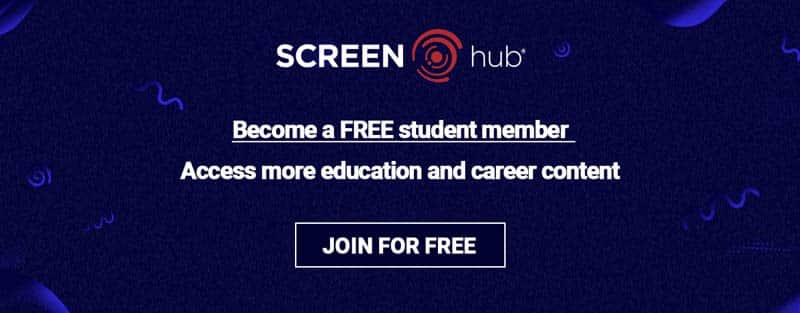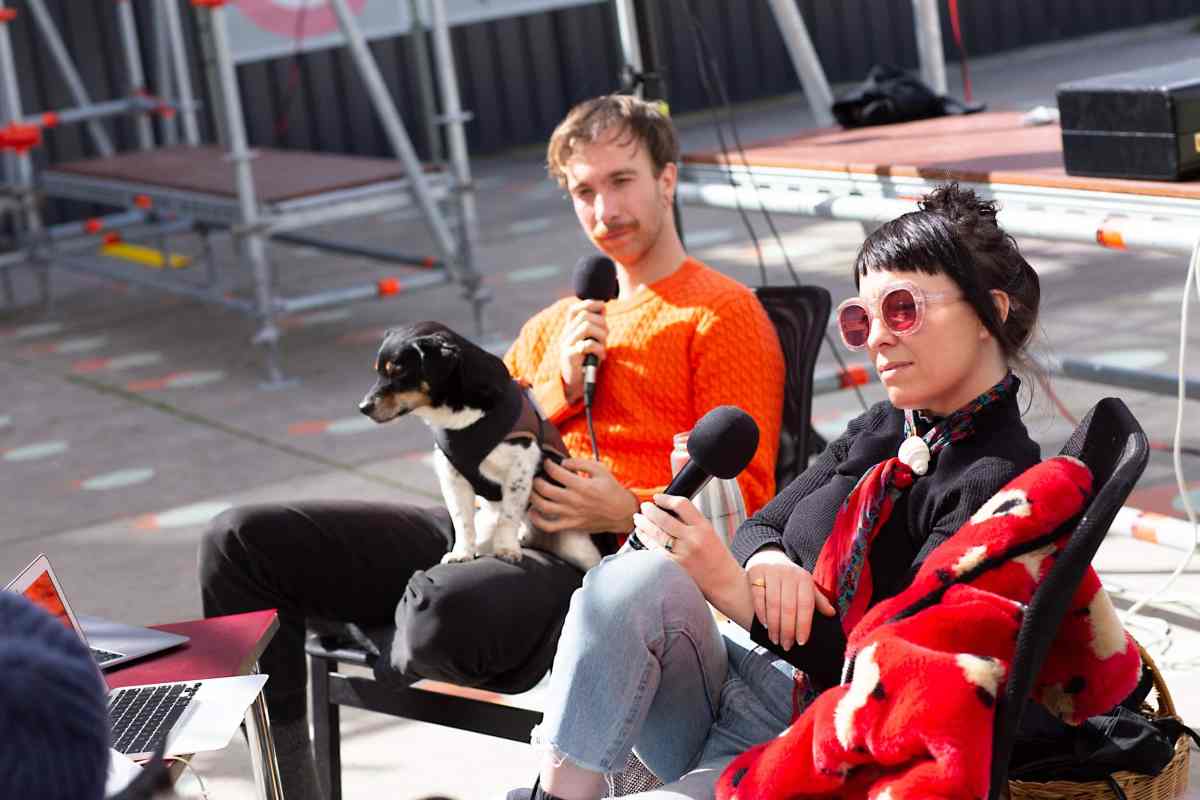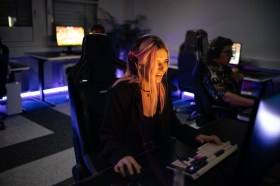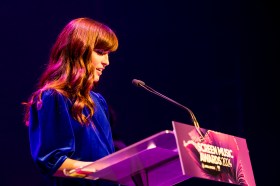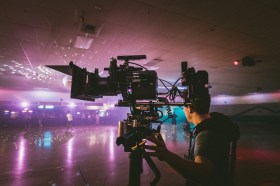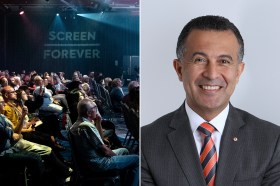How do you make an artist blush? Ask them how much they earn. Whether it’s too much or, more likely, too little, the number is almost always a matter of shame.
For most of us working in the creative sector – artists, writers, performers, arts workers – the amount of money we make, inherit, save or spend is an intensely private matter. It’s tangled up in knots of angst, guilt and self-recrimination.
This should be no surprise. After all, we live inside the prison of late capitalism, where human worth has a dollar amount attached to it. Inside this system, an individual’s financial situation is judged almost entirely as a product of their own life choices.
Ergo, if you’re “stupid” enough to risk a creative life, you deserve what you get when you struggle.
The myth of the pure artist
Working alongside the logic of capitalism is the myth of the “pure artist”. This story tells us that real artists don’t care about money, or think about it too much. Real artists starve for their art if they need to. Survival is the best they can hope for, unless they’re one of the lucky anointed few allowed to be rich, famous and “authentic” all at once.
Inside this myth of the pure artist, art is more like “play” than “work”, and labouring in the arts – even in the support roles around the creative industries – is a luxury and a privilege. We are lucky to be paid at all.
Self-limiting beliefs
On the surface, most of us are realists. We know it’s possible to earn a living and also be genuinely creative. Many artists run successful businesses and hustle like pros in multi-hyphenated careers, while also keeping their own creative flames alight.
Here at ArtsHub we know that whenever we publish a practical story about money, taxes and building a business, readers are interested.
But dig a little deeper and you may find some hidden toxic beliefs about money and art. Read the list below and see if any of these strike a chime:
- Artists are always broke.
- Creative people aren’t good at managing money.
- Creative people aren’t good at maths or numbers of any kind.
- Being poor is romantic.
- Real artists are crazy and irresponsible.
- Having a vocation means accepting poverty and precarious employment.
- Pain creates better art – suffering and creativity go together like love and marriage.
- Being paid at all in the arts is a luxury.
- Other people manage, so there’s something wrong with me if I can’t get ahead.
- Talking about money is rude or embarrassing, and asking for more money is greedy and selfish.
Who does our silence serve?
Who does it serve when we stay quiet and remain deliberately ignorant about money? Employers, mostly. Secrecy breeds injustice.
Transparency about pay, for instance, allows us to see where things aren’t right – to contemplate disturbing facts like this: in Australia, right now, a woman will have to work an extra 56 days a year to earn the same amount as a man.
Or this, from Australian diversity and inclusion organisation MindTribes, which reports that men of ethnic backgrounds are paid as much as 16 to 20% less than their Anglo male counterparts, and women of ethnic backgrounds as much as 36% less, with First Peoples women suffering the largest gap of all.
We need to talk about this.
Banishing pay secrecy
Transparency around pay is one of the Federal Labor Government’s changes to the Fair Work Act. From 7 June 2023, pay secrecy terms can no longer be included in employment contracts, and employers who do include them could face penalties.
This means you are now legally entitled to talk to your colleagues about what you’re paid. You can’t be forced to, of course, but you can if you want. And by talking, you may decide to bargain collectively or engage with your union.
Read: Me and my mentor: Britt Salt and Hannah Gartside
Jennifer Mills – demanding fair pay in the arts
Writer, editor and activist Jennifer Mills is passionate about talking about money in the arts. As well as being the author of novels like The Airways (2021) and Dyschronia (2018) – shortlisted for the Miles Franklin Award – Mills is an outspoken advocate for fair pay in the arts and creative sectors. She is active in the Media Entertainment Arts Alliance (MEAA) freelance campaigns and is also a director of the Australian Society of Authors (ASA).
For Overland, Mills argued for artists to support a Universal Basic Income. For Meanjin she analysed the the new government’s cultural policy, Revive, and said, ‘It’s time … to demand fair pay in the arts.’
More recently also for Meanjin, Mills wrote ‘My year as a salaried artist’, a powerful essay stacked with jaw-dropping statistics about low incomes and precarious conditions for those in the arts, citing in particular the 2021 report, ‘Creativity in Crisis: Rebooting Australia’s Arts and Entertainment Sector After COVID‘ by economist Alison Pennington and academic Ben Eltham.
Citing Creativity in Crisis Mills wrote that 45% – almost half – of all employees in arts and recreation services were in casual roles (defined as employment without access to basic paid leave entitlements, like holiday and sick leave, and superannuation).
‘Artists and writers are categorised as sole traders, and as small businesses we absorb many of the costs of our labour (studio space, materials, administration, communications). We have no sick leave or protection if injured. We are under-unionised and lack the kind of organising power that might change these conditions for the better,’ wrote Mills.
Mills was candid about her own situation of usually making $30,000 to $40,000 a year, while working 40-hour weeks, writing: ‘I achieved the dubious accomplishment of becoming a full-time writer by living in my car for more than a year when I started. I do not recommend this career pathway.’
She then used herself as a case study for what a year of secure employment can do for an artist’s practice. She was employed part-time in 2022 as Artist in Residence for radical arts institution Vitalstatistix, based in Kaurna Country in Port Adelaide, South Australia, at the heritage-listed Waterside Workers Hall.
Mills used this time at “Vitals” to think and write about labour issues in the arts, advocating for solutions to the current reliance on unpaid, underpaid and undervalued work.
She now tells Artshub that she is starting to see an increasing openness to talking about money in the arts, but it’s slow.
‘Artists are definitely better at it and the small to medium sector has improved a great deal, but in my experience this hasn’t trickled up to bigger players like media companies, large festivals, universities and major institutions,’ Mills says. ‘We have a lot of work to do, but I am encouraged by some big shifts like the establishment of Creative Workplaces, for example. That would not have happened unless we were all talking about these issues. Real change always starts at the grassroots.’
Mills’ own experience of having even a modest reliable income for a year was transformative, and she wishes more organisations, not just those in the arts, would take on an artist in residence.
Read: Career and money advice from Andy Warhol
‘Subsidies and tax incentives would help,’ says Mills, ‘but there’s also a cultural shift needed in valuing the work of artists beyond the decorative or the usual health and education outcomes.
‘There’s a piano at the hospital, so why not employ a composer? I’d love to see sporting venues get on board, like a salaried poet in residence at the Adelaide Oval.’
Talking about money can be part of the art
Mills says that joining a union or taking collective action can actually be part of a creative life, even when you’re not in secure, properly paid employment.
‘Organising with MEAA and the ASA enriches and supports my creative practice in so many unexpected ways. Collective action is one of the most effective art forms we have. At its best it’s joyful and empowering. Why work in competitive isolation when you could team up and change the world?’
What artists eat: challenging the “starving artist” myth
Artists Claire Lefebvre and Zoltan Fecso began their podcast What Artists Eat during the pandemic, in order to ‘chew on the myth of the starving artist’.
Each episode features an interview with an artist about their practice and also, quite literally, what they eat, how they feed themselves and, often, how they make a living. The podcast uses food (deliciously photographed on Instagram) as an exploration and inquiry into the realities of the creative life.
In their first episode, interviewing Melbourne artist and community builder Zoë Blow, the discussion touches on the idea that ‘exposure doesn’t taste very good on toast’. This is a perfect encapsulation of how most artists feel when they’re expected to work for free.
Lefebvre and Fecso tell ArtsHub, ‘Money is a hard topic to discuss, but we can see how competitive and exploitative life can be for artists today. Opportunities and barriers are changing constantly in the arts and, as a result, so are revenue streams. While society at large still accepts the “starving artist” as a baseline level of existence, nurturing an artistic career will continue to feel murky and uncertain. We want to provide a platform where artists can share their stories, experiences and advice. Hopefully this way we can make these hard conversations feel more accessible.’
Healthy beliefs about money and art
We started with toxic beliefs and shame around money, so to finish, here are some nice affirmations that may feel challenging, but they’re true:
- Money is a resource to aid creativity and create choice.
- Artists can be the most creative money-managers of all.
- There is a long tradition of artists as entrepreneurs.
- Talking about money is part of being an adult in society.
- Know what you make, and what you spend. There’s power in counting.
- You’re worthy, no matter how much you make, or don’t make.
